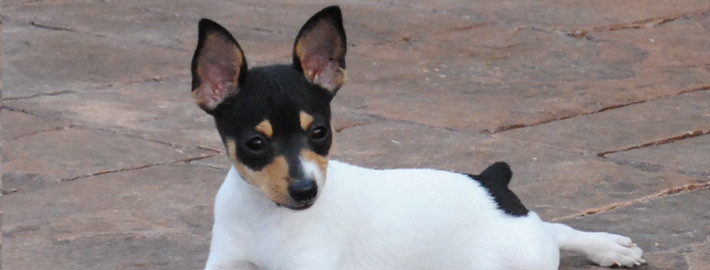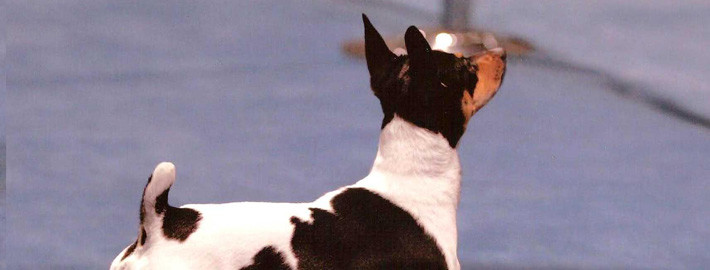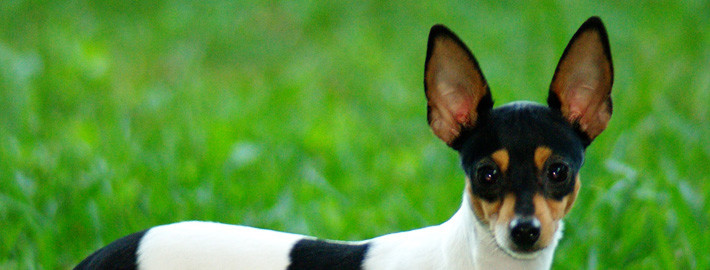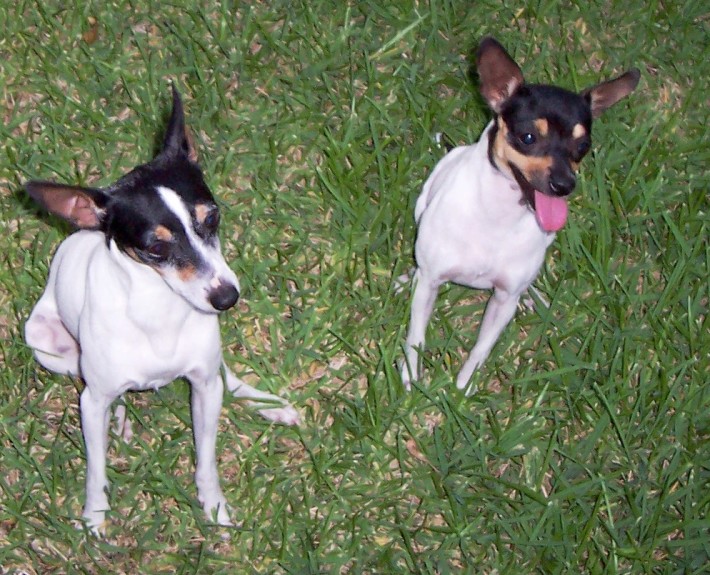What makes the Toy Fox Terrier Unique?
Native to the United States, these energetic toy dogs make great buddies for careful older children.
Breed Groups
Page Contents
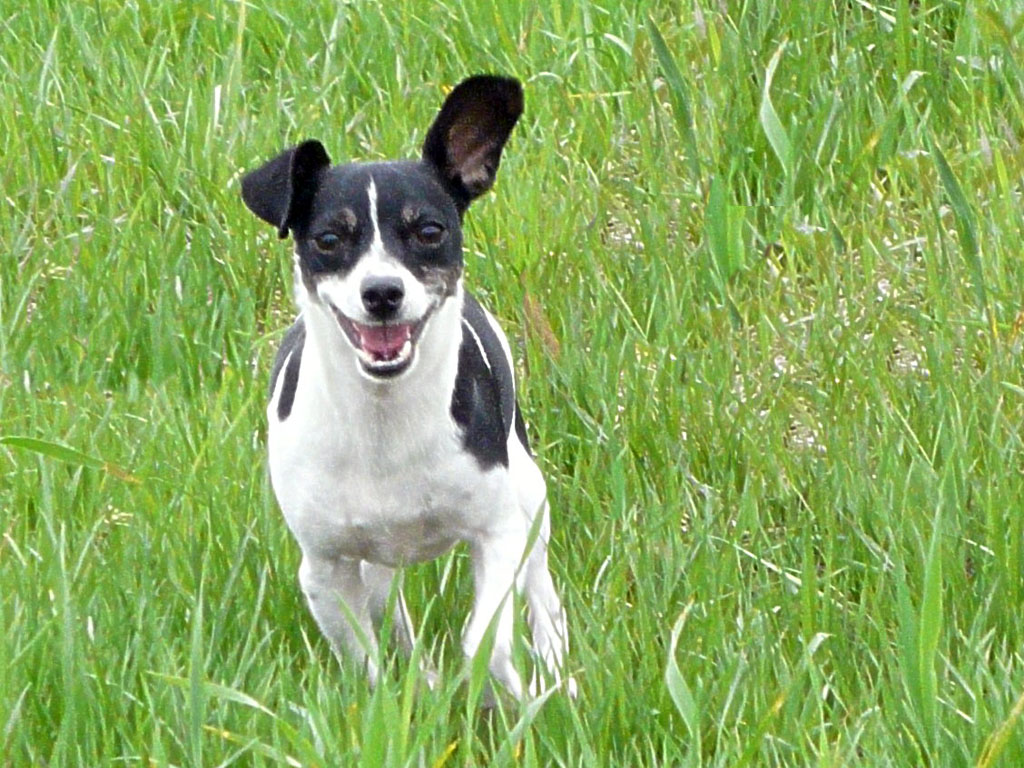
Is the Toy Fox Terrier Right For You?
Toy Fox Terriers are quite intelligent and they quickly learn new tricks. They maintain their playful personalities throughout the course of their lifetimes. Due to their diminutive stature, Toy Fox Terriers also adapt well to life in smaller households. Yet their high noise levels and extremely active dispositions may make them a poor choice for apartment life.
Toy Fox Terriers are an outgoing and friendly, yet fiercely loyal to their families. They are content and capable of any range of activities from hunting, to obedience, to just lounging around in the sun. Children especially enjoy the unending energy and zeal for play throughout this dog’s life, but as with all Toy breeds, they are not recommended for small children.
In 5 Words
- Playful
- Loyal
- Friendly
- Intelligent
- Spirited
Characteristics
Learn About the Toy Fox Terrier
Description
General Description
These athletic little dogs are a small scale version of the Smooth Fox Terrier. Their bodies are compact, thin, and proportionate. Toy Fox Terriers move with a fluid, ground-covering gait. Members of this breed have v-shaped ears, deep chests, and rounded heads. Most members of this breed also have black noses. These dogs additionally possess large, dark eyes. Their teeth should meet in a scissors bite. Their tails vary in length because, in places where the practice isn’t illegal, the aforementioned appendage is often docked. Dewclaws are also typically removed on members of this breed.
Size
Dogs of both genders stand between 8.5 and 11.5 inches tall (22 and 29 kilograms) and weigh between 3.5 and 7 pounds (1.5 and 3 kilograms). American Kennel Club standards given preference to dogs that are between 9 and 11 inches in height.
Coat
Toy Fox Terriers have a short, shiny coat. The fur at their necks is somewhat longer than it is on the rest of their bodies but it isn’t particularly long there either. These dogs are mostly white but they may also have patches of different colors on their bodies. According to the American Kennel Club, acceptable color combinations include white with brown, tan, chocolate, black, black and tan, or chocolate and tan.
Short History of the Toy Fox Terrier
These dogs were first created during the 1930s to serve as vermin catchers on American farms. The runts from Smooth Fox Terriers litters were eventually crossed with breeds such as the Chihuahua, the Toy Manchester Terrier, and the Italian Greyhound to further reduce their size. This crossbreeding also resulted in calmer dogs. The United Kennel Club acknowledged the breed in 1936. These same dogs underwent a name change when they were admitted to the American Kennel Club in 2003 as the Toy Fox Terriers.
Temperament
Many of these dogs are live wires while others are better suited to being lapdogs, so prospective owners should carefully discuss any prospective adoptees with those individuals who know the canines in question well and can help them select one that best fits their family’s expectations. As a general rule, Toy Fox Terriers are busy and inquisitive but they tend to be somewhat wary of unfamiliar people. Even so, members of this breed love playing with their humans and exploring new environments.
As long as they are handled with care, these dogs are devoted to the human members of their family. However, Toy Fox Terriers and other small dog breeds are not recommended for families with young children because it is far too easy for either the kids or the pet in question to be unintentionally injured. It is likewise a bad idea for prospective owners to introduce members of this breed to households that already contain small pets such as hamsters and gerbils because Toy Fox Terriers have a strong prey drive and unfortunate encounters may occur. Members of this breed have also been known to pick fights with larger dogs but they do seem to get along quite well with cats.
Yet Toy Fox Terriers are quite intelligent and they quickly learn new tricks. They maintain their playful personalities throughout the course of their lifetimes. Due to their diminutive stature, Toy Fox Terriers also adapt well to life in smaller households. Yet their high noise levels and extremely active dispositions may make them a poor choice for apartment life.
Caring for Your Toy Fox Terrier
General Health
In general, these healthy little dogs live between 12 and 15 years. Yet there are some conditions that can arise from time to time. Toy Fox Terriers tend to suffer from skin allergies but they can also be allergic to a number of common dog food additives including wheat, corn, and beets. Dogs that show signs of allergies should have their diets carefully monitored to keep them from getting sick. Fox Terriers are also sensitive to cool temperatures so owners will want to plan accordingly and perhaps bundle these dogs up in sweaters when the weather outside is chilly. Other conditions that are prevalent in this breed are Legg-Perthes disease and Von Willebrand’s disease. The former ailment is treatable but the second can be fatal at times. In either case, dogs that suffer from either health problem should be removed from breeding programs and spayed or neutered to avoid passing these genes to subsequent generations. Hypothyroidism, primary lens luxation, and luxating patella have also been seen in members of this breed on occasion.
Care
Daily
Toy Fox Terriers are incredibly energetic and need two or three short walks per day to keep them at their best.
Weekly
These dogs need to be brushed once a week to keep them from shedding everywhere It is also a good idea to cleanse a dog’s teeth regularly to prevent both bad breath and periodontal disease.
Monthly
Parasite prevention medication is a must for all dogs and these products are normally used once a month.
Grooming & Bathing
Toy Fox Terriers only need to be bathed when they get dirty. Their toenails will also need to be kept trimmed to prevent injuries from occurring.
Exercise & Training
Members of this breed will get plenty of exercise simply racing around the house but they also benefit from having access to a fenced-in yard and regularly scheduled walks. Owners should note that Toy Fox Terriers like to dig and some may become nuisance barkers if they are not properly trained. Toy Fox Terriers are intelligent but they, like most terriers, can be incredibly stubborn at times. It is not uncommon for members of this breed to ignore commands that they don’t like. However, rewards based training is usually successful with these dogs. Lessons should be kept short and interesting. They should also take place in an environment that is free of distraction because otherwise the dogs may not focus on the task at hand. Once trained, members of this breed have successfully competed in a variety of dog sports.

